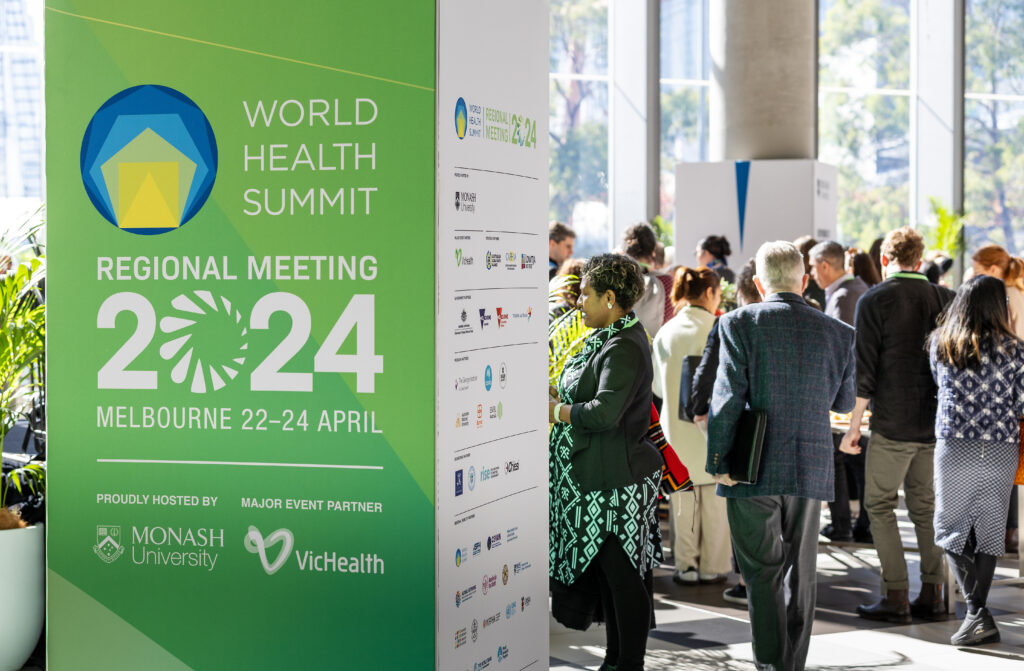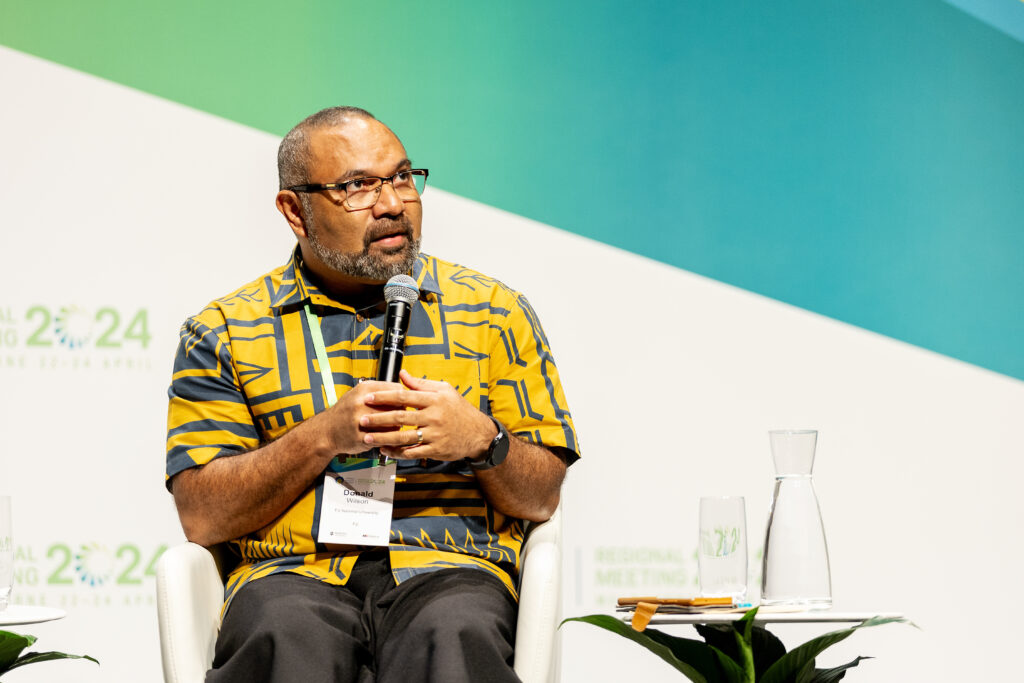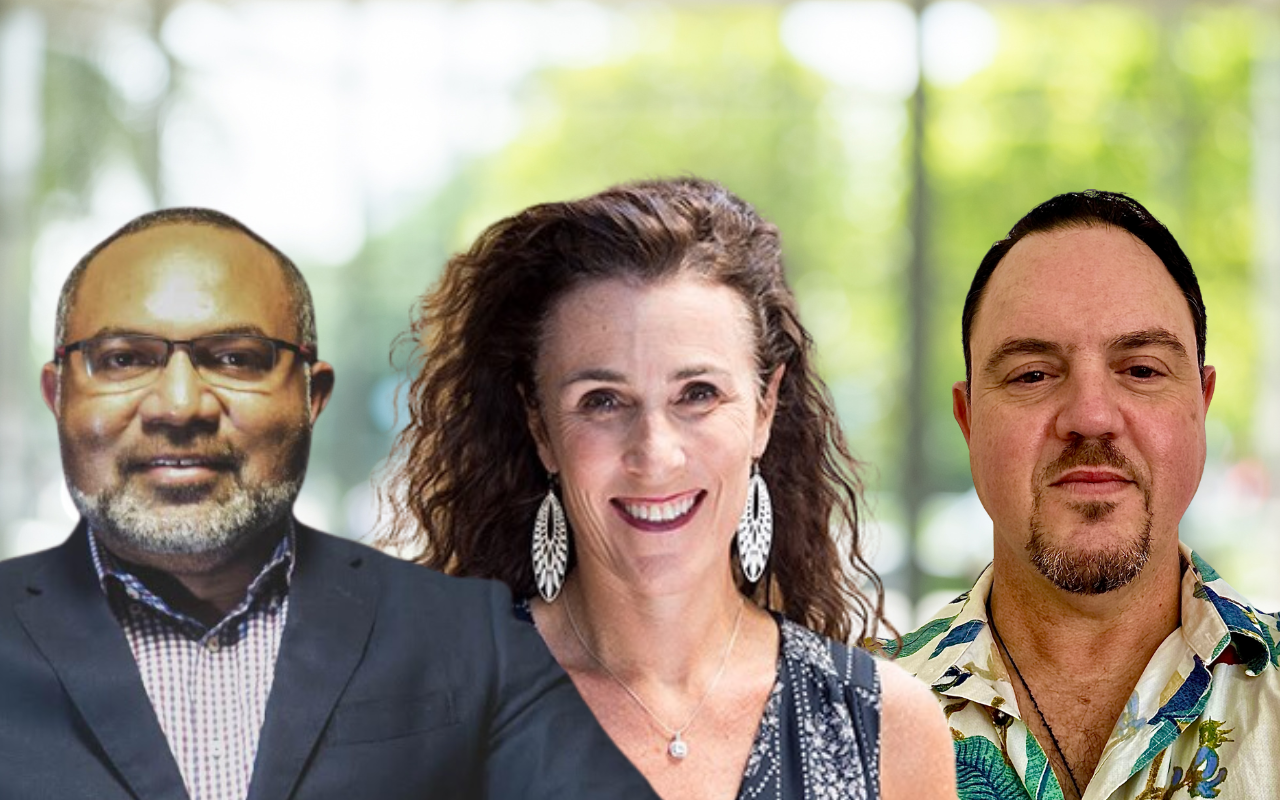The first regional World Health Summit took place in Melbourne earlier this year, bringing together participants from around the world to explore the intersection of Indigenous knowledge, climate change and planetary health.
On the morning of 22 April, the pulse of the World Health Summit Regional Meeting 2024 began beating through the halls of the Melbourne Convention and Exhibition Centre, with smoke from burning gum leaves welcoming participants to the land of the Wurundjeri people of the Kulin Nation in south-eastern Australia. Under the bold theme, “Shape the future of health across Asia and the Pacific”, this ground-breaking conference, the first of its kind in the region, united over 1100 participants from Australia, the Pacific region and worldwide from diverse spheres of global health.

Over the next three days, emphasis was placed on the intersection of Indigenous knowledge, climate change and planetary health. The health of Indigenous peoples, and their long-held world views were repeatedly highlighted for inclusion and respect in global health strategies. This emphasis was underscored by the introduction of a special publication titled “Health: a political choice – advancing Indigenous peoples’ rights and well-being”, a collaboration between the Global Governance Project and the World Health Organization. The challenges and opportunities presented by the intertwined issues of Indigenous knowledge, climate change and planetary health are vast and demand a hopeful and deeply considered approach to discourse and action.
Planetary health, a field that seeks to understand and address the impacts of human-induced environmental changes on human health, has never been more relevant. As articulated in the summit, the health of our planet and its intertwined social and ecological systems directly influences the health of its human inhabitants. This understanding aligns closely with Indigenous perspectives, which have long recognised the deep connections between the environment and human wellbeing.
A key session led by Catherine Chamberlain from the University of Melbourne focused on climate change and the health of Indigenous peoples. This session highlighted how Indigenous knowledge can offer unique insights and sustainable solutions to climate-related health challenges. Indigenous knowledge emphasises the importance of balance and reciprocity with nature, principles that can greatly inform broader health strategies in the face of climate change.
In his session, Professor Donald Wilson from the Fiji National University highlighted the place-based approach of the Watershed Interventions for Systems Health (WISH) project in Fiji, recognising that managing watersheds holistically is a key to simultaneously achieving various environmental, economic and health goals that support sustainable development. This approach allows for targeted actions to improve overall systems health, tailored to each unique local environment, and includes the active participation of communities who have a deep cultural connection to these regions, thus promoting sustainable practices and wellbeing. In these contexts, place-attachment, driven by a strong desire to maintain cultural identity and practice, incentivises Indigenous people to take actions that support key dimensions of health and wellbeing, which include maintaining and restoring ecosystems that provide critical services and natural resources that underpin cultural vitality and community health.

The discussions also reiterated that the climate emergency is a health emergency, with the most severe impacts often borne by those who have contributed least to global warming. This includes many indigenous communities across the Asia–Pacific region. The session facilitated by John Thwaites at the Monash Sustainable Development Institute on transforming climate change evidence into action underscored the need for immediate and inclusive action plans that incorporate the voices and rights of Indigenous peoples.
Monash University and its partners’ involvement in bringing the World Health Summit Regional Meeting to Melbourne is a testament to the increasing commitment to addressing regional health challenges in the Asia–Pacific region through a planetary health lens. The university’s message, as shared in their recent social media updates, reflects their hopefulness and pride in facilitating meaningful discussions that integrate diverse knowledge systems, including Indigenous perspectives, to tackle complex global health issues.
The summit’s session on “New and old knowledges: First Peoples’ health and AI”, moderated by Karen Adams from Monash University, provided a contemporary example of how traditional knowledge and modern technology can intersect to enhance health outcomes. Discussions in this session explored the potential of artificial intelligence to support health strategies that are informed by Indigenous knowledge, ensuring that technological advancements are culturally sensitive and beneficial to all segments of society.
The way forward must be collaborative, integrating scientific research with Indigenous wisdom to develop health strategies that are effective, sustainable and culturally respectful. Sessions such as the “Revitalising Informal Settlements and their Environments (RISE) program”, moderated by Karin Leder, highlighted innovative approaches to urban planning that respect and incorporate traditional practices and ecological knowledge. The summit’s focus on planetary health, emphasised by the presence of global health leaders and Indigenous scholars, sends a strong message: the health of humanity is inextricably linked to the health of our planet. This realisation should drive all stakeholders, including governments, health care providers and academia, to pursue a more integrated approach to health that respects and learns from Indigenous ways of knowing, being and doing.
In conclusion, the World Health Summit Regional Meeting in Melbourne has set the stage for continued dialogue and action that bridges Indigenous knowledge and scientific research to tackle the pressing health challenges of our time. As we move forward, it is essential that these discussions translate into actionable strategies that prioritise the health of both the planet and its people, ensuring a sustainable future for generations to come.
Dr Aaron Jenkins is an eco-epidemiologist and Australia’s inaugural senior research fellow in planetary health– combining rigorous ecological methods with public health approaches to address the intersecting upstream determinants that simultaneously affect biodiversity, water resource management, climate change mitigation and human health. He also holds a Sydney Horizon Fellowship focusing on watershed management in the Pacific and leads pacific Planetary Health Hub of Sydney Institute for Infectious Diseases.
Professor Karin Leder is an infectious disease physician and epidemiologist who co-leads Planetary Heath within the School of Public Health at Monash University and is the inaugural director of Monash’s Health and Climate Initiative. She is Research Director for the Monash-led Revitalising Informal Settlements and their Environments (RISE) program, and has extensive experience leading complex transdisciplinary research to examine the impacts of environmental exposures on health, particularly in Asia-Pacific.
Dr Donald Wilson is Associate Professor of Epidemiology at the College of Medicine, Nursing & Health Sciences (CMNHS) at the Fiji National University (FNU). He is also the Associate Dean Research and founding director of the Fiji Institute of Pacific Health Research (FIPHR), based at CMNHS. In this role over the years, he has collaborated on research projects with academics from Australia and New Zealand, and also partnered with international and regional organizations in delivering on various projects in the areas of NCD’s, communicable diseases, sexual & reproductive health, etc. Two of the larger research activities (the “RISE” and “WISH” projects) take a planetary health approach towards identifying and addressing endemic diseases such as leptospirosis, typhoid, dengue and diarrhoeal diseases in rural communities and peri-urban settlements in Fiji.
The statements or opinions expressed in this article reflect the views of the authors and do not necessarily represent the official policy of the AMA, the MJA or InSight+ unless so stated.
Subscribe to the free InSight+ weekly newsletter here. It is available to all readers, not just registered medical practitioners.
If you would like to submit an article for consideration, send a Word version to mjainsight-editor@ampco.com.au.

 more_vert
more_vert